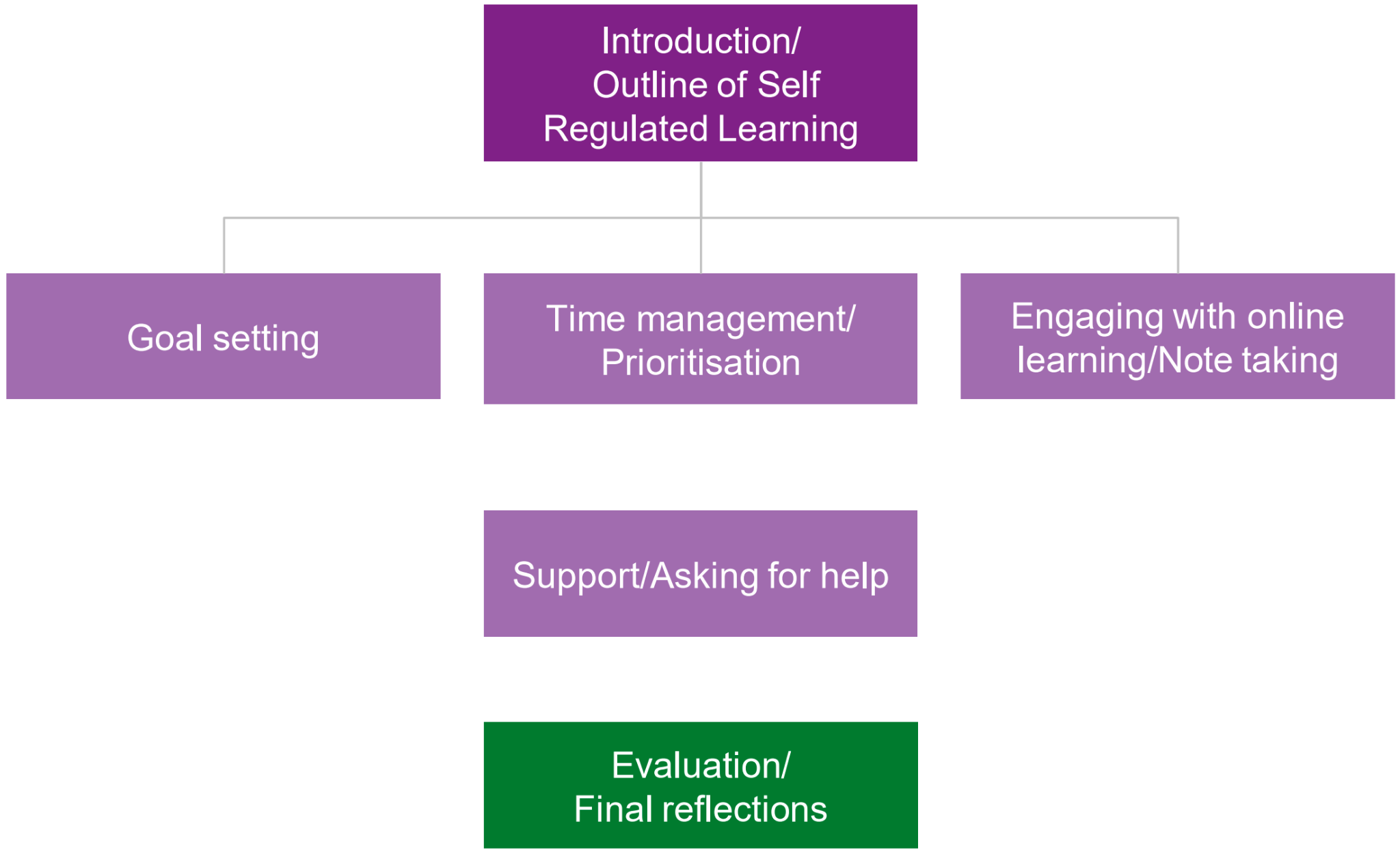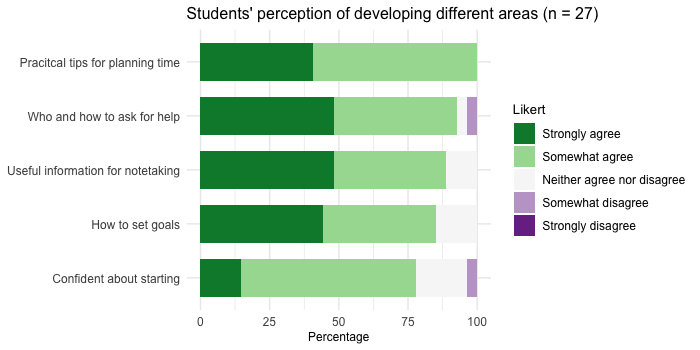
In this post, the authors discuss how they created an intervention in the form of an online resource that draws from the evidence-based self-regulated learning framework. This initiative was aimed at ensuring first-year Psychology students continued developing core academic skills in spite of having to study remotely during the pandemic. This post is part of the ‘Hot topic’ theme ‘Lessons from the Learning and Teaching Conference 2021′.
Starting university can be a challenge in the best of times with new people, new places, and a new form of learning and teaching. Starting university during the Covid-19 pandemic added a whole new level of challenges for students as well as from an instruction perspective.
In Psychology, we have a big focus on scaffolding core academic skills as a part of the first year curriculum. Normally these skills are developed in-person through interaction with peers and staff, but this usual approach was not possible in the 20/21 academic year. Furthermore, as students had to learn online, they needed to be more independent and take responsibility for their own learning – the online learning experience is less structured and relies more on students organising their own activities.
We therefore wanted to create an intervention in the shape of an online resource that our first year students could complete in their own time. The aim of the intervention was to support the development of core academic skills, as well as students’ development as responsible and proactive learners. We are happy to share this intervention with anyone who is interested.
In developing the intervention, we used the evidence-based framework of self-regulated learning (e.g. Zimmerman, 2002). A self-regulated learner is someone who is purposeful in their learning and reflects on their learning process to enhance it. It is often conceptualised in a cyclical framework as shown below. First, students plan their next learning session, thinking about what strategies are best suited to their learning goals. Then, students do the actual learning using the identified strategy while monitoring progress, successes and failures, before finally reflecting on their learning experience. These reflections are then taken into the next planning stage.

Our goal with the resource was to introduce students to the self-regulated learning framework, while teaching them practical study strategies that mapped onto each of the stages. Working through our intervention, students were introduced to time management strategies, goal-setting, and note taking strategies, amongst others.
We built the intervention in Storyline Articulate. This software allows interactive elements such as formative quizzes, reflective prompts, and embedded videos, which were used throughout the intervention to support student engagement. Students worked through five different sections that were each embedded as HTML links in the Psychology 1A Learn page. Students were informed about the intervention and its purpose in the welcome lecture, and Personal Tutors also made students aware of the resources, mirroring some of the topics covered in the intervention within personal tutor meetings.

In a cohort of 378 students, 82 % engaged with at least one of the sections, and the majority of our students completed all five sections (299 students). We asked students about their experiences with the intervention and got permission to analyse 27 responses. Generally speaking, students found that they learned new things about the chosen study skill as well as reporting that they felt more confident starting university. These findings line up with the goal of the intervention.

We also sought qualitative responses and students were again generally positive about their experience with the intervention. The word cloud below shows the occurrence of coded topics we found in students’ responses.

Of course, we should be clear that these data are from a subset of students, but the data do suggest that supporting students with an online complete-in-you-own-time resource allows students to effectively be introduced to new skills and support them in transitioning to university.
We attempted to identify if completion of the intervention had any effects on student performance, however given the nature of the data (most of the students completing the majority of the intervention and with big self-selection effects), we were not able to make any conclusions. Nonetheless, as mentioned above, students did seem to enjoy the intervention and – at a minimum – were introduced to some of the skills we would hope to scaffold and show them in-person had that been possible.
We are very happy to share the intervention with colleagues in the University. We’ve collected all sections together with a small guide for how to adapt the materials so they fit your context, so if you are interested please get in contact with Kasia or Tobias (Kasia.Banas@ed.ac.uk and Tobias.Thejll-Madsen@ed.ac.uk) and we can share it with you!
You can watch Kasia, Eva and Tobias’ presentation on the Learning and Teaching Conference website.
 Tobias Thejll-Madsen
Tobias Thejll-Madsen
Tobias Thejll-Madsen is working part-time with researchers in PPLS on educational research and development, and he previously worked with the University’s Employability Consultancy. Here, he was a lead author of the Reflection Toolkit and developed resources for embedding employability and student development into the curriculum. His current full-time occupation is as a PhD student with University of Glasgow researching facial expressions and emotions.
 Eva Murzyn
Eva Murzyn
Eva Murzyn is a Senior Teaching Coordinator in Psychology and she leads on a variety of projects to do with the development of core academic skills among our students. Outside of her role in learning and teaching, Eva is interested in how people engage with virtual worlds such as those in video games and tabletop role-playing games, and how their behaviour and choices in game can be predicted by their real life personality and attitudes.
Twitter: @EvaMurzyn
 Kasia Banas
Kasia Banas
Kasia Banas is a Programme Director and UG Talent Lead in Data-Driven Innovation at the Usher Institute. In her previous role as a Senior Teaching Coordinator in Psychology, she was involved in the development and evaluation of this intervention. Kasia is a psychologist by training and her work focuses on improving the student experience at university by using insights from cognitive, educational and social psychology.
Twitter: @edinkasia

